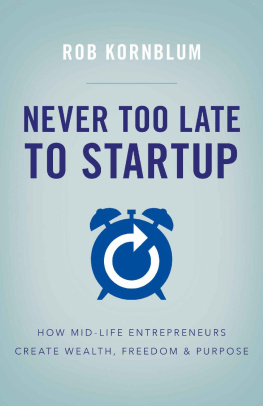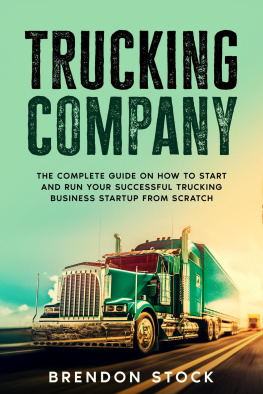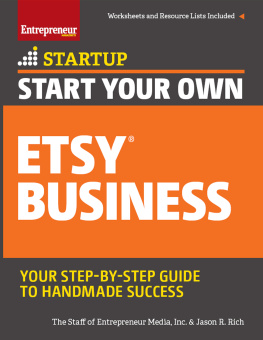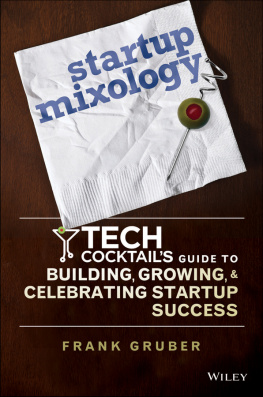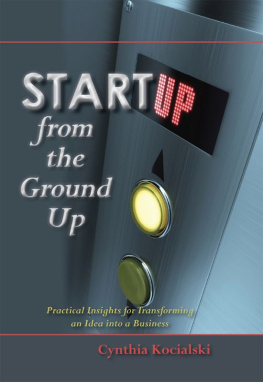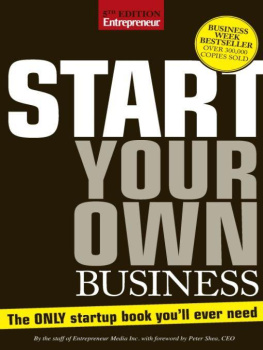The greatest danger for most of us is not that our aim is too high and we miss it, but that it is too low and we reach it.
Michelangelo
J oe Williams was frustrated . Last year, he sat down at his computer to go over his finances. His 401(k) account was up; that was the good news. The bad news was that it still hadnt recovered from its decline in 2008 and 2009. In 2010, Joe lost his job as a project manager for a large oil company. It took him five months to find a new job, during which time his savings took a beating.
Joes new job pays well, though not quite as well as his old job. His wife works part time, but her hours were just cut back, which puts a real dent in their income. On top of that, Joes health insurance premiums are going to increase by more than 10 percent next year.
He can pay his bills, but his retirement and college savings plans are way behind. He shakes his head thinking about college for his two daughters. Theyre smart and could probably be accepted to elite private universities, but how would he pay for it?
Joe has been considering an idea for a new business startup. As a professional project manager, he has always struggled to find easy-to-use management tools. Hes tried them all, and he has solid ideas for better solutions. Hes been mulling it over for almost six years. Hes an avid watcher of Shark Tank, the reality TV series in which aspiring entrepreneurs pitch a panel of potential investors called sharks. He also subscribes to Inc. magazine.
Joe is seriously considering going into business for himself, but hes still not sure. Could he really pull it off, starting a company at age forty three? Arent startups for young kids right out of college?
Starting Up in Mid-life
I wrote this book for people whove been working for awhile and want to start their own businesses, people I call mid-life entrepreneurs. If youre in your late thirties, forties, or perhaps into your fifties, and youve been thinking about starting your own company, Never Too Late to Startup is for you.
This book came about to fill a need.
Id been running my own startup located in an incubator when I noticed that most of my peer CEOs were in their twenties, significantly younger than I. I was struck by how differently they did everything, from the hours they worked to how they approached team-building, raising money, and working with customers. I started blogging about it and discovered a whole world of mid-life entrepreneurs out there who needed to know more about how to start a business later in life.
What they needed and wanted was a real-world field guide geared specifically for mid-life entrepreneurs.
In these pages youll meet successful mid-life CEOs and company founders whove done exactly what youre about to do. Their startup stories apply at every level of career, particularly mid-career and even later as todays retirees increasingly venture out on their own.
Mid-life entrepreneurs already have a few decades of work and life experience. Like you, they have significant professional skills, typically a large and valuable network, and the motivation to build something for themselves and their families.
Your own hard-earned professional experience and skills are huge benefits when applied to building a new business. Skills such as hiring, organization, planning, communication, selling, and negotiating all improve with time and age. They are invaluable advantages as you start your first company in mid-life or mid-career.
Where Are You Right Now?
Becoming a mid-life entrepreneur poses some unique and significant challenges. Mid-life founders dont just need the right business idea; they need to find the time in an already full life to assess, execute, and manage all the details of their new company.
Contrary to popular media clichs, no one comes out of the womb a born entrepreneur. Sure, some people are more comfortable with risk than others. Some kids are more inclined to ski the double black diamonds. But much in life is learned and earned along the way.
So, where are you right now?
Youre in your forties (or something like that) and you feel youre finally ready to start a company. You had good reasons to not do it sooner. You were building a career, learning your trade, making money, climbing the corporate ladder, or just living your life.
It doesnt matter why you didnt start a company in your twenties. What matters is that youre ready now. You have the ideas, the maturity, the skills, the motivation, and maybe some savings. Youve built up a tolerance for risk, and youre ready to learn new things.
The entrepreneurs youll meet in Never Too Late to Startup could pretty much be you. They werent born yesterday and they brought established skills and experience to the table. They werent huge risk takers. In my interviews with them, they expressed measured and thoughtful approaches to launching new products, hiring people, and spending money.
Transform Your Life, Change the World
You are about to embark on a journey in which you take control of your work. Youll control what you work on, who you work with, what hours you work, where you work, and what impact youre going to have on the world.
It might seem far-fetchedthe idea that you can impact the world with your new business. But its really not.
Maybe youre looking to build a technology company that will change the way people communicate or work, or a game that millions of people will use. Or maybe youre going into business as a consultant or blogger so you can spread your knowledge and skills.
As your business succeeds and grows, youll be impacting more people. The first time you hire a new employee, youll feel it in your gutthat sense of responsibility for someone elses financial well-being. Youll want your business to succeed and grow that much more. And trust me, itll feel entirely different than hiring staff in a corporate job on someone elses dime and company name.
As you follow the stories of entrepreneurs on these pages and learn the ins and outs of starting your own business, youll see why I believe that entrepreneurs are made, not born. There is no entrepreneur gene, only tried and true ways to get there. All you need is a guide, which is why I wrote

